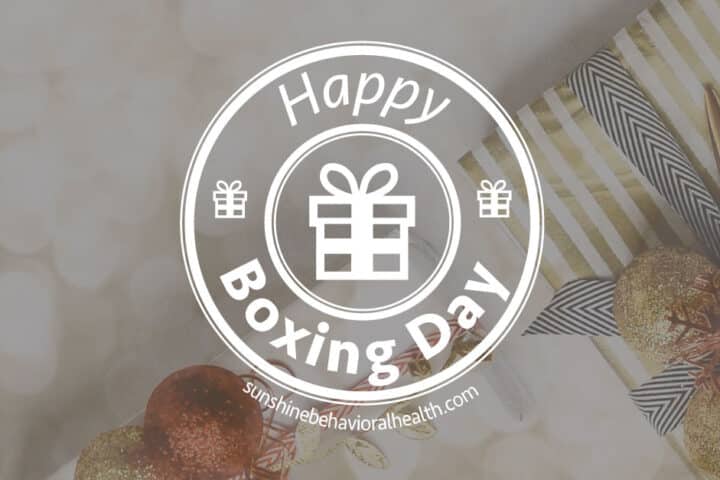
Boxing Day: How Generosity Helps Mental Health
December 26 is traditionally known in several countries as Boxing Day. This holiday dates back to the time when workers received Christmas boxes from their employers as gifts.
The Christmas box is a symbol of generosity and kindness, bringing joy not only to the receiver but also to the giver. How exactly can generosity help own mental health?
Although Christmas is a time of warmth and togetherness, many people actually feel high levels of stress during the holiday season. Whether people feel lonely and are unable to celebrate with their families or feel overwhelmed because they’re trying to tackle several holiday tasks, the stress of the season is real for some.
After Christmas, the holiday season continues for many. December 26 is known as Boxing Day and is a time of generosity. Traditionally, the less fortunate have been given boxes and gifts and churches have been opened so that the poor can receive alms.
How does this event relate to your mental health? Whether you’re struggling from general stress, a diagnosed mental health condition, or substance abuse, generosity can be one of the things you can practice for better well-being because it
Provides purpose
People might wander through life feeling depressed because they have lost their sense of purpose. They might feel as if they are not contributing to their loved ones, their community, or the world as a whole. When you practice giving, you open up a whole new level of purpose that you may have missed before.
A sense of purpose allows you to be a better person, to stay motivated, and fight things that can hurt your health. Since purpose gives your life meaning, you might want better your life as well as the lives of everyone around you.
Shifts the focus off ourselves
Rumination can cause anxiety. We might constantly dwell on our past experiences, worry about what others might think about us, or obsess about the future. Anxiety can take over our minds and consume us entirely.
When we give to others or support causes, we shift our focus from ourselves to others. This allows us to shift away from thoughts, stressors, and other negative thinking patterns that are unhelpful.
Being generous provides many benefits at the same time. You have the chance to make the world a better place as well as an opportunity to free yourself from constant rumination.
Creates a sense of community
Generosity can also build community and companionship opportunities. The people you help might become your friends. You can meet like-minded people who share your values and could encourage you further.
Isolation can contribute to mental health problems such as depression and addiction. Being generous can help you fight loneliness and mental health concerns while helping others.
Practicing Generosity: Boxing Day and Beyond
This Boxing Day, you can give gifts, donate to worthy causes, or volunteer safely with social distancing measures. Through these small acts of kindness, you can multiply the joy not just for the recipients, but also for yourself. There are always simple ways to practice generosity in your life.
Sources
bbc.com – Rumination: The Danger of Dwelling
mentalhealth.org.uk – What Are the Benefits of Altruism?
livingwell.org.au – Give to Others
A Message From Our CEO
Medical disclaimer:
Sunshine Behavioral Health strives to help people who are facing substance abuse, addiction, mental health disorders, or a combination of these conditions. It does this by providing compassionate care and evidence-based content that addresses health, treatment, and recovery.
Licensed medical professionals review material we publish on our site. The material is not a substitute for qualified medical diagnoses, treatment, or advice. It should not be used to replace the suggestions of your personal physician or other health care professionals.






